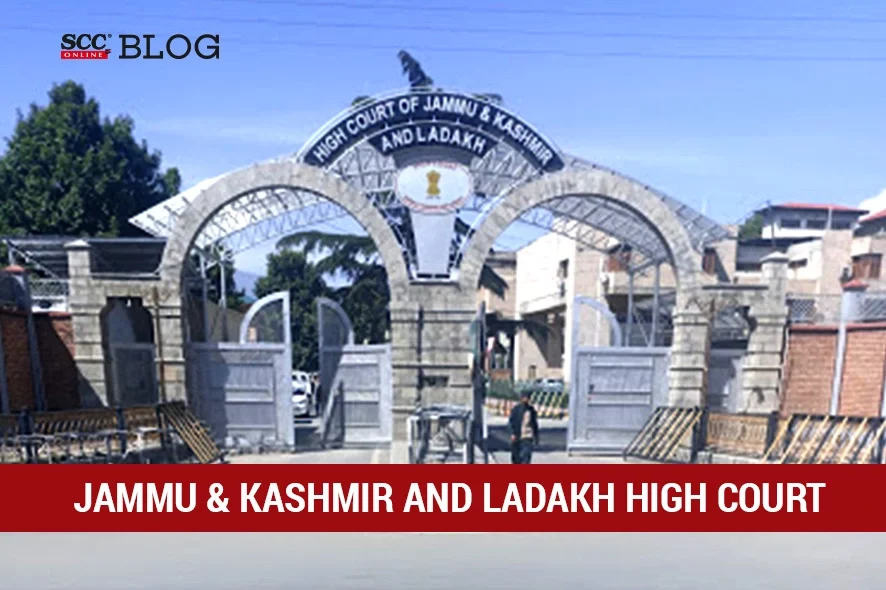Jammu and Kashmir and Ladakh High Court: While deciding the instant appeal wherein the Court had to determine that whether the husband was guilty of instigating or intentionally aiding the victim to commit suicide; the Bench of Rajesh Sekhri, J.*, opined that mere harassment of a wife by her husband or in-laws due to matrimonial discord or sarcastic remarks per se does not attract Section 306 of Ranbir Penal Code.
Background: In June 2008, the respondent’s wife was admitted in the hospital as a burn case. The victim’s statement was recorded wherein she revealed that she got married to the respondent about 2.5 years ago but was not blessed with any child. Therefore, she was putting up separately and was not living with her in-laws. During a telephonic conversation with the respondent, the victim requested him to come back but he refused and asked her to go from where she had come. This annoyed the victim and she doused herself in kerosene oil and set herself ablaze. The victim also stated in her statement that it was only her husband who was responsible and made her to take the extreme step to end her life. Subsequently, the victim was referred to another hospital, however, she succumbed on way to the hospital.
Based on the afore-stated statement, FIR for offences under Sections 306/498-A RPC was registered against the respondent. The matter reached the Trial Court wherein it was concluded that prosecution case is bad for want of substantive independent evidence and prosecution has failed to prove the abetment on the part of the respondent. The Trial Court observed that it was a case of suicide and therefore, respondent was acquitted of the charges.
Aggrieved with the afore-stated verdict, the instant appeal reached the Court.
Court’s Assessment: Perusing the trajectory of the case and the facts, the Court noted the delay in recording the statements of prosecution witnesses, however, investigating officer has not been examined by the prosecution, which is sufficient to dislodge the prosecution case.
Perusing the relevant provisions of Ranbir Penal Code (RPC), the Court noted that prosecution is obliged to prove intentional aid and active participation of the abettor. It was further noted that in a case of abetment to suicide, the entire matter possibly would be clothed in secrecy, thereby making it very difficult to collect direct evident. However, circumstances attending the case can be more significant than direct evidence by establishing culpability of the accused.
The Court noted that in the instant case, the prosecution has relied heavily on the victim’s dying declaration wherein she had narrated the alleged instigating conversation with the respondent. The Court pointed out that it is evident from the utterance of the respondent that there was neither any intention on his part nor any positive act taken by him to instigate the victim or to aid her in the commission of suicide. “It appears that his intention was only to get rid of the victim and he could not have thought of any consequences that his wife would be go and commit suicide due to such utterances”. The ultimate decision to set herself ablaze, taken by the victim in the instant case cannot be said to have a direct nexus with the alleged acts committed by the respondent. Therefore, it cannot be said that the commission of suicide by the victim in the instant case was the proximate result of the words uttered by the respondent at the relevant point of time.
The Court also took note of statements made by independent witnesses where they stated that deceased victim was short tempered and that she set herself ablaze after becoming annoyed. The Court also took note that parents of the deceased victim presented a completely different story and tried to project the case as that of murder as against the prosecution’s assertion of the matter being of suicide.
The Court pointed out that there is no evidence or material on record from where an inference of respondent having abetted the commission of suicide by the deceased may be drawn. There is nothing on record to suggest that respondent ever intended or actively participated to abet the commission of suicide by the deceased.
The Court stated that deceased was hypersensitive to ordinary sullenness of matrimonial life. There may be various instances of matrimonial discord between husband and wife and at times wife being constantly taunted and subjected to sarcastic remarks in the house of her in-laws may be driven to commit suicide. However, such instances are normal wear and tear of a matrimonial life and per se do not attract the provisions of Section 306, RPC. The Court further stated that in matters such as the instant case, Courts must assess facts and circumstance of the case as also evidence adduced by the prosecution during the trial with care and circumspection in order to determine whether cruelty alleged to have been meted out to the wife in fact induced her to end her life by committing suicide.
With the afore-stated observations, the Court dismissed the appeal and upheld the impugned judgment of the Trial Court.
[State of J&K v. Tariq Hussain, 2023 SCC OnLine J&K 324, decided on 15-06-2023]
*Judgment delivered by Justice Rajesh Sekhri
Advocates who appeared in this case :
For Appellants- Dewakar Sharma, Dy. AG;
For Respondents- Sidhant Gupta, Advocate.







